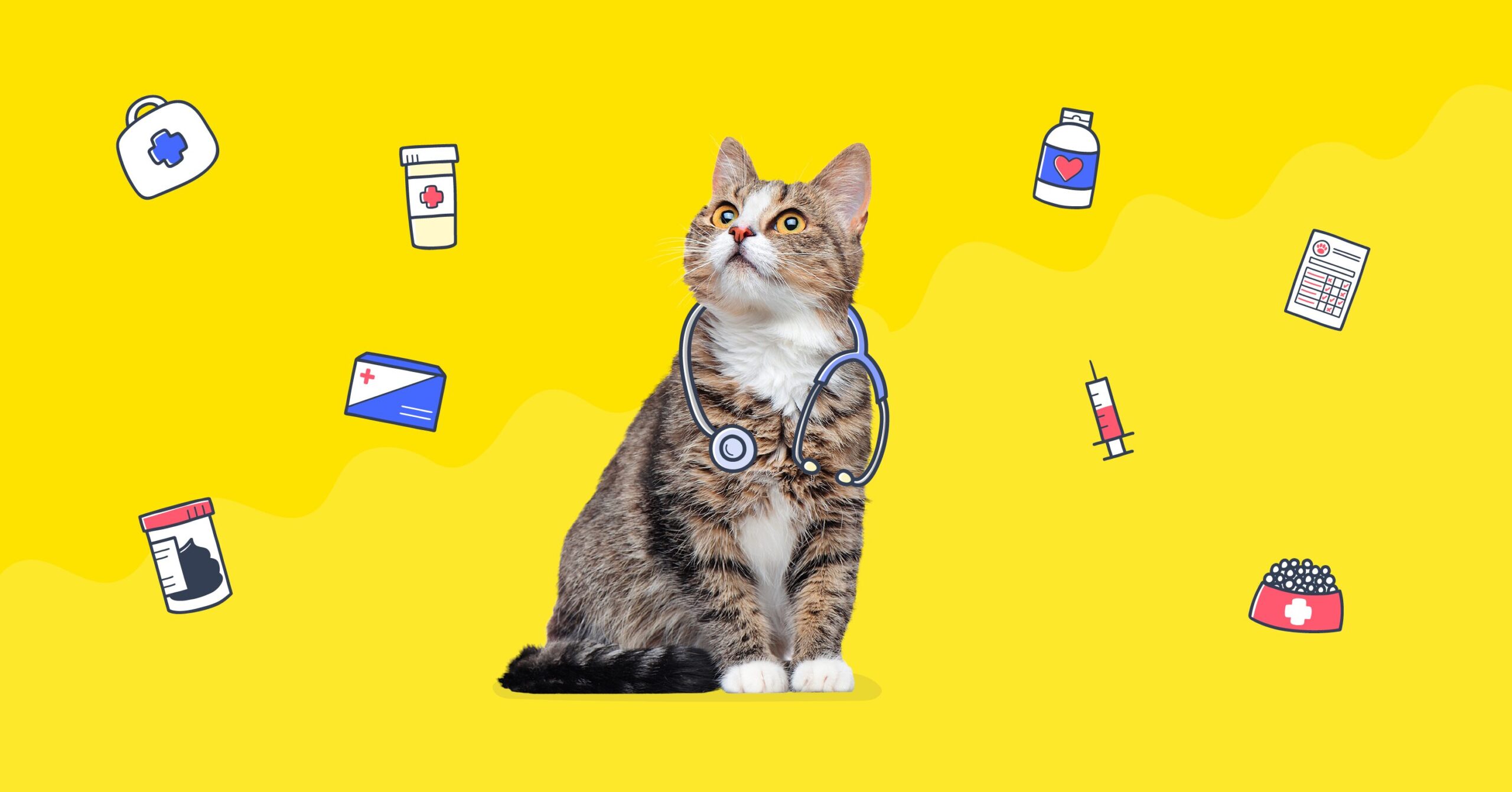Like any loving pet parent, you want your fur baby to live the happiest, healthiest life possible – and taking them to the vet is a huge part of that.
However, trips to the vet shouldn’t only happen when your pet is hurt and sick. In fact, taking them for regular wellness exams and following up on preventive care is an absolute necessity.
Preventive care is exactly what it sounds like – it aims to prevent illnesses and injury through proactive health assessment and treatments. From vaccinations to dental cleanings, not only does practicing preventive care help your pet thrive, but it also can help reduce medical expenses in the long run.
After all, veterinary practices are a one-stop shop! Your veterinarian is your pet’s family doctor, dentist, and general surgeon all in one – and your vet hospital is not just a diagnostic laboratory and pharmacy, but also a wellness practice.
To capitalize on all the expertise your vet has to offer, it’s important to be proactive about your pet’s health. Let’s dig into how to do it!
Becoming a pet care guru
It’s important to prepare for your vet appointment so you can make the most of your time together. A huge part of this is understanding your pet’s general health and habits, so you can answer your vet’s questions accurately, and in turn, they can give you the best care possible.
If you get lost in the weeds with “What is a leptospirosis vaccine?” you may not have the opportunity to ask important questions like, “What types of eye or orthopedic conditions should I look out for in their breed?” So before your next visit, get to know that loveable pet of yours in the following areas. Before you know it, you’ll be a petcare guru!
10 areas to explore before your next wellness visit
1. Learn about your pet’s breed
Ask your veterinarian about disease screening with annual lab panels based on species, age, and/or breed. If you don’t know your pet’s lineage, you may consider giving them a cat DNA test or dog DNA test in advance, so you can research breed predispositions further.
2. Describe their lifestyle
How does your pet live their best life? Are they a jet-setter, dumpster-diver, mouse-hunter, or camper? Do you live near waterways or have mosquitoes and raccoons in your area? Your vet will want to know this important lifestyle information.
3. Think about diet and weight management
Is your cat or dog at a healthy weight? Are they consuming a healthy diet? If you’re unsure, take a look at this body condition scoring guide and talk to your vet about your fur family’s fitness goals. You will be speaking the language of your veterinarian when you talk about these numbers! Your vet may also have an ideal food recommendation for your pet.
4. Prevent Heartworm Disease
When was the last time your pet was tested for Heartworm Disease? Heartworm testing and prevention is recommended annually. You can view the risk of heartworm infection in your state before your appointment by searching pet disease alerts.
5. Peek at your pet’s poop
You read that right! Checking your pet’s feces for intestinal parasites or oddities in the consistency is super important. Scoop a teaspoon-sized sample on the day of your vet visit. Presenting feces in a plastic bag with your pet’s full name on it for microscopic evaluation is a true gift to the vet team. Believe it or not, even indoor cats can have parasites! It’s surprising what can be lurking in stool samples.
6. Check for fleas
A good practice, in general, is to check the base of your pet’s tail for evidence of fleas. If you see black “dirt” or live fleas, it’s evidence that your pet has a full-on flea infestation. Report this to your vet team so that they can get your pet back on track with a year-round flea, tick, and heartworm prevention plan. You may also need tapeworm therapy because those buggers may be carrying rice-like worms too!
7. Keep up with medication refills
Is your pet on any medications? Did your veterinarian recommend rechecking a lab panel while your pet is on these medications? Your pet’s annual appointment is a great time to ask about this and to refill prescriptions. If your pet already has insurance, medications prescribed for covered conditions may be covered by your pet’s plan.
8. Consider microchipping
Is it your pet’s first visit or are you unsure if your pet has a microchip? Bring your microchip information, ask for a microchip scan, or consider microchip implantation. Your pet’s insurance plan may even cover microchip implantation.
Tip: Did you register your address to the microchip? Be sure to check that too!
9. Check out those pearly whites
Our pets tend to clam up at the vet when it comes to dental care. While your pet is relaxed at home, take a look at their mouth. Do you see any areas of concern? Is there a fractured tooth, a nodule, or erosion?
10. Stay up-to-date on vaccines
This is the reason why everyone thinks they are at the wellness visit. A true pet care guru knows that this is only one (yet, important) part. Your veterinarian will help you choose the best vaccine protocol based on your pet’s lifestyle. You will likely have multiple visits for puppy vaccines, two to three visits for kitten vaccines, and one annual wellness visit for adult pets.
And there you have it! By starting with just one or two of these tasks before your next wellness visit, you can be one step closer to the pet care guru your pet needs you to be. And with a little help from your veterinarian, you can ensure your fur baby lives a happy, healthy life.
Pumpkin Pet Insurance policies do not cover pre-existing conditions. Waiting periods, annual deductible, co-insurance, benefit limits and exclusions may apply. For full terms, visit pumpkin.care/insurancepolicy. Products, discounts, and rates may vary and are subject to change. Pumpkin Insurance Services Inc. (Pumpkin) (NPN#19084749) is a licensed insurance agency, not an insurer. Insurance is underwritten by United States Fire Insurance Company (NAIC #21113. Morristown, NJ), a Crum & Forster Company and produced by Pumpkin. Pumpkin receives compensation based on the premiums for the insurance policies it sells. For more details visit pumpkin.care/underwriting-information and pumpkin.care/insurance-licenses.
Preventive Essentials is not an insurance policy, and is not available in all states. It is offered as an optional add-on non-insurance benefit. Pumpkin is responsible for the product and administration. For full terms, visit pumpkin.care/customeragreement.




